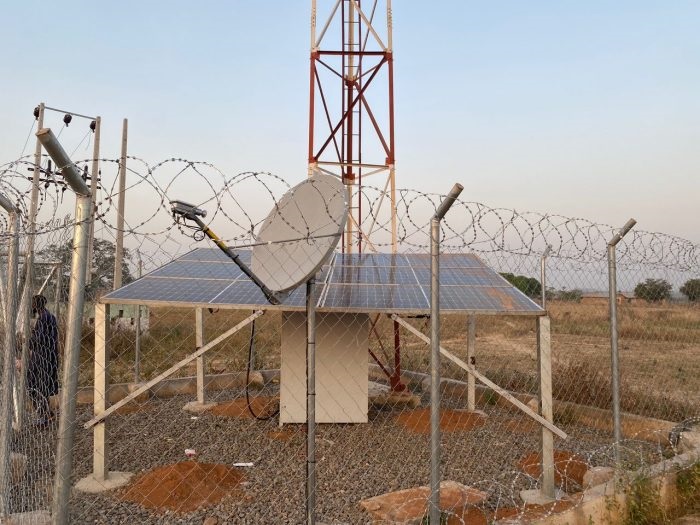Hotspot Network Ltd. (HNL), a leading telecommunications service provider, and Husk Power Systems, operator of the largest fleet of rural solar-hybrid microgrids, today announced a partnership in Nigeria to transition mobile towers from diesel generation to solar power, and to bundle electricity and connectivity solutions for off-grid communities.
The two companies have already converted nearly 20 of Hotspot’s mobile towers from diesel to solar, and expect to complete at least 100 projects by the middle of 2023. Nigeria’s estimated 25,000 telecom towers and their base transceiver stations (BTS) use 1.25 million liters of diesel daily. Per tower, that is equivalent to 50 tonnes of avoided CO2 emissions annually if converted to solar.
By working with Husk Power, Hotspot is able to go zero-carbon from design to installation, reducing both capital and operational costs, accelerating their energy transition and avoiding risks from global diesel price volatility. Hotspot can now guarantee 100% clean energy service to mobile and data customers on a 24/7 basis.
In addition, the two companies have started to collaborate in introducing cost-effective energy and digital communications services to off-grid communities. Already two communities where Husk was operating solar microgrids have also accessed mobile coverage for the first time through Hotspot. The previous lack of coverage meant an inability for local businesses and households to take advantage of mobile payment and other digital services.
“By partnering with commercial and industrial businesses, we can speed up Nigeria’s C&I energy transition, and also open up more low carbon, modern services to drive economic opportunities where they didn’t previously exist,” said Husk Nigeria Country Director, Olu Aruike. “For Husk, reliable network coverage also enables us to better serve our customers, which is our ultimate mission.”
According to Founder and Chief Executive of Hotspot Network Ltd, Engr. Morenikeji Aniye, “We believe firmly that the key to unlocking sustained global economic growth is through digital inclusion of the rural communities; providing them with access to the needed tools, funding and the markets to distribute their various commodities and trade. This partnership enables us to deliver on our mission to digitize the unserved and underserved communities more efficiently and sustainably, whilst taking care of our planet.”


Comment here